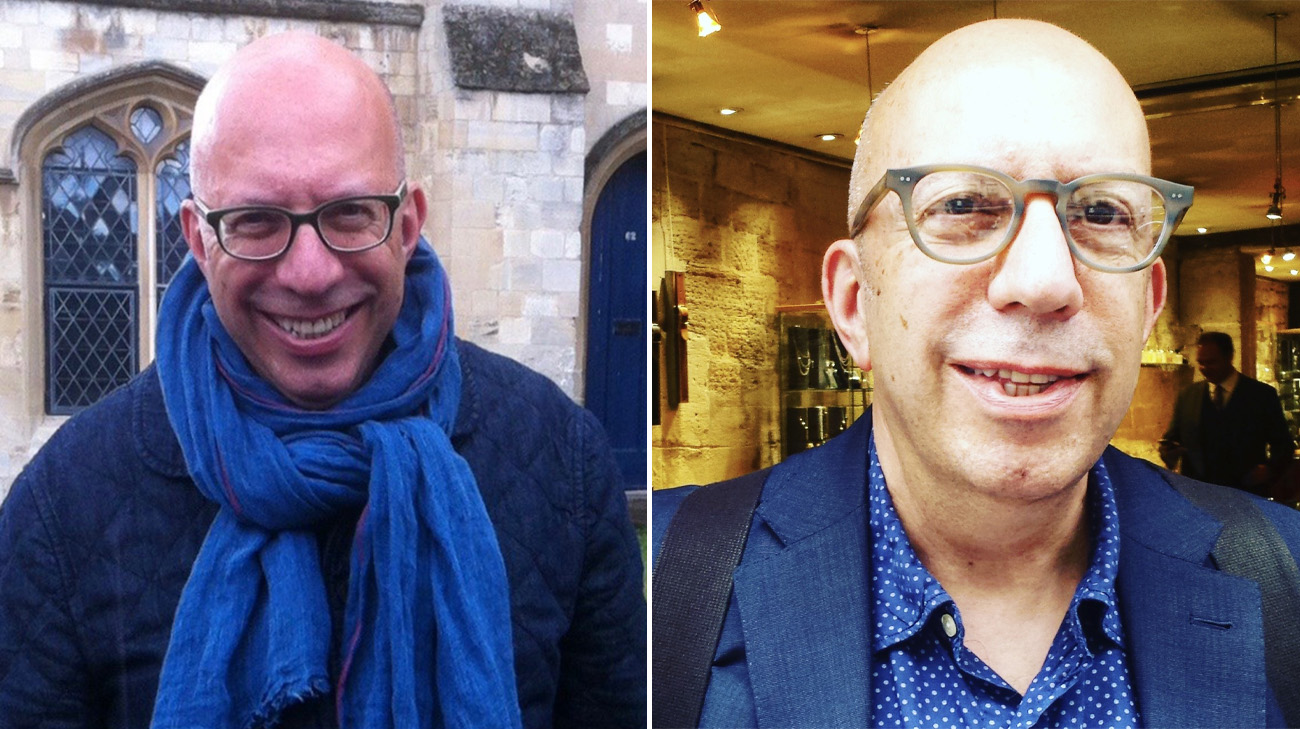
In a world increasingly focused on preventative healthcare, Cleveland Clinic London’s executive health screenings offer an in-depth, patient centred assessment designed to identify risk factors and promote overall well-being. For 68-year-old Max Cohen, a psychotherapist from London, the decision to undergo the comprehensive four-hour screening stemmed from concerns about his family’s medical history. “I have a family history of coronary heart disease, so I was worried I may be predisposed to that,” he says. Coupled with being slightly overweight and managing his diabetes, Max felt it was time to take a proactive approach to his health.
“In my private practice, I work with a lot of people who get these health assessments, and I always thought I’d love to get one,” Max says. The motivation to invest in his health was reinforced by the fact that he was personally funding the screening. Max’s screening was performed by GP Dr. Simon Hodes at Cleveland Clinic Portland Place Outpatient Centre, in the Harley Street Medical Area. Max described his screening experience as seamless. “I was warmly greeted and taken to a private room which was mine for the day,” he says. “Everything felt very professional, efficient and comfortable.” The screening included various tests, starting with basic vitals, followed by a detailed body composition scan and further bespoke consultations and diagnostics throughout the day. Between tests, he was offered refreshments and lunch in his private consultation room.
The most significant unexpected finding from Max’s assessment was calcification around his coronary blood vessels. “Scans indicated a high plaque burden on his heart,” Dr. Hodes says. “Given his elevated cholesterol, family history and diabetes, we needed to address his lifestyle and cardiometabolic risk factors”
Since Max has type 2 diabetes and had been struggling with weight loss, he was referred to a dietitian, (a service included with his executive health assessment), who provided him with lifestyle modifications. “Ultimately, after careful discussions, we decided to initiate a weekly GLP1 injection (semaglutide) to help manage his diabetes, weight and cardiovascular risk,” Dr. Hodes says. “I coordinated an appointment with our cardiologist and we all worked closely with Max and his NHS GP to adjust his diabetes medication, leading to improvements in his general health.”
Max expressed gratitude for the collaborative nature of his experience. “I felt very much like a participant and not a patient. I felt heard,” he says, emphasising the continuity of care he received.
The holistic nature of the executive screenings at Cleveland Clinic London ensures the best results for patients. “The screenings are tailored based on individual risk factors, age and gender, ensuring that each patient receives the most relevant and effective evaluations,” Dr. Hodes says.
“We are performing evidence-based individualised screens and try to offer each patient a bespoke experience based on their situation.”
For Max, the assessment proved to be more than just a series of tests; it was an opportunity to take charge of his health. “The package itself went beyond what I expected,” Max says. “It was really comprehensive, and I appreciated the personal touch of having direct conversations with Simon and the other specialists.”
“The package itself went beyond what I expected. It was really comprehensive, and I appreciated the personal touch of having direct conversations with Simon and the other specialists.”
Following his appointment, Max had ongoing, convenient access to Dr. Hodes and his team of specialists through the MyChart medical record app, allowing him to address any follow-up questions or care needs. “We use MyChart to keep in touch, answer queries, remind patients about follow-ups and to initiate prescriptions,” Dr. Hodes says. “Patients who come for these checks seem to enjoy the accessibility and continuity of care offered and often return to us for routine care because they were happy with the attention and care we provided.”
As part of the executive health screening, patients also undergo a wellness check that covers mood, sleep, exercise plus overall emotional and social health. “Lifestyle is fundamental: Sleep and emotional well-being is a crucial topic in these discussions, and where required patients are signposted for psychological support, whether through exercise, coaching, therapists, books or apps,” Dr. Hodes says.
Max hopes his journey serves as a reminder that taking charge of your health is a powerful step toward improved quality of life and increased chances of longevity.
“The whole experience was very personal. I didn’t have to wait to get a letter in the mail after discharge with my results,” Max says. “I could speak to Simon or the person who ran the test and ask questions.”
“If you look at the World Health Organization’s definition of ‘health’ it’s a state of complete physical, mental and social well-being and not merely the absence of disease or infirmity,” Dr. Hodes says. “Longevity, prevention and health span are what we’re all about. We hope these holistic patient-centred screenings, with the conversations and ongoing care that follow can help people achieve optimum health.”


